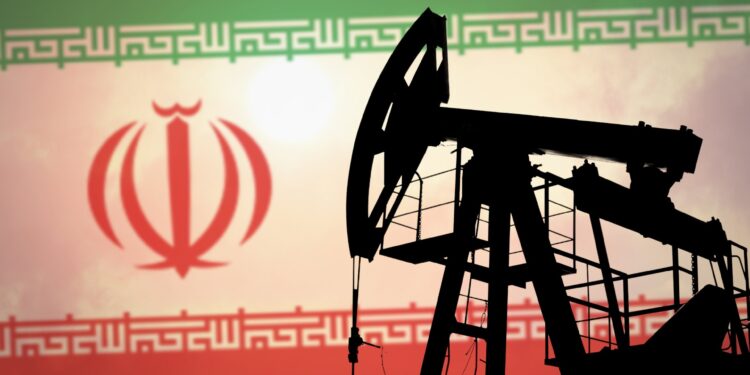Bloomberg said that despite the ongoing US sanctions, the Iranian oil industry has returned to a level close to its maximum capacity, amid fears that it will be exposed to danger in light of escalating tensions with Israel.
The agency indicated that Iran’s oil production increased by 33% over the past two years to reach 3.4 million barrels per day, according to data it collected from private sources, which is only a few hundred thousand barrels less than the level it was pumping before the imposition of US sanctions by the former president. Donald Trump in 2018.
New threats to Iranian oil
Iran was able to enter more oil into the global market at reduced prices, taking advantage of Chinese demand, with the implicit approval of the administration of US President Joe Biden, which preferred reducing gasoline costs over imposing stricter sanctions, especially in an election year. But the current military escalation threatens these vital supplies.
According to Eurasia Group analysts Henning Glaustein and Greg Bro, Iran has achieved success in oil exports thanks to the presence of an enthusiastic customer in China, the increasing development of illegal transportation channels, and a weak US desire to take tough measures.
But global markets were affected by the threats, as oil prices jumped by 5% after Biden’s statements that the United States was discussing supporting a possible Israeli attack on Iran.
Targeting oil infrastructure
Bloomberg says targeting Iran’s oil industry would cause significant damage to the Iranian economy, whether by targeting refineries that supply the domestic market with fuel or export facilities that provide vital revenues. However, Israel may be reluctant to target these facilities given its relations with the United States, the European Union, and countries in the Gulf.
Although a direct attack on oil infrastructure may not happen, Iran’s return to the oil market may be at risk in the future, especially if the Biden administration decides to change its policies, or if Trump reimposes tougher sanctions if he wins the elections, according to Bloomberg.
Shadow fleet
According to Bloomberg, Iran was able to export large quantities of oil to China through the so-called “shadow fleet” of old tankers that transfer oil from one ship to another, or change the country of origin of the oil.
This mysterious fleet, which was also used to transport Russian oil following the Ukraine war, helped Iran keep the oil flowing despite sanctions, adds the Bloomberg report.
Petro-Logistics, a company specializing in tracking tankers, says that the continued increase in Iran’s production poses a challenge to the strategy of the Organization of the Petroleum Exporting Countries (OPEC) aimed at controlling production and raising oil prices, as Iran is a member of the organization but is exempt from production restrictions due to sanctions. American.
The Bloomberg report indicates that even if Israel attacks Iranian oil facilities, OPEC and its allies have the ability to cover any shortage in supplies.



